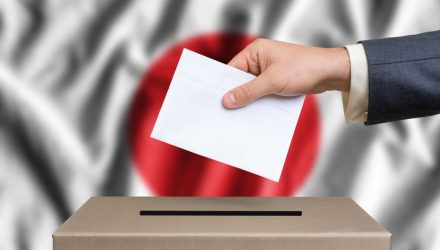Outside of demographics, we believe another earnings boost can come by incentivizing companies to be more productive with the resources they already possess. Under Abe in 2014, Japan instituted the sorely-needed Stewardship Code, which rewards improved corporate governance, and forces Japanese companies to publicly commit to return-on-equity (ROE) targets. Japanese ROE has improved since the Code was enforced…a positive sign in our opinion.
Important Disclosure Information:
The comments above refer to generally to financial markets and not RiverFront portfolios or any related performance.
RiverFront Investment Group, LLC, is an investment adviser registered with the Securities Exchange Commission under the Investment Advisers Act of 1940. The company manages a variety of portfolios utilizing stocks, bonds, and exchange-traded funds (ETFs). RiverFront also serves as sub-advisor to a series of mutual funds and ETFs. Opinions expressed are current as of the date shown and are subject to change. They are not intended as investment recommendations.
RiverFront is owned primarily by its employees through RiverFront Investment Holding Group, LLC, the holding company for RiverFront. Baird Financial Corporation (BFC) is a minority owner of RiverFront Investment Holding Group, LLC and therefore an indirect owner of RiverFront. BFC is the parent company of Robert W. Baird & Co. Incorporated (“Baird”), a registered broker/dealer and investment adviser.
These materials include general information and have not been tailored for any specific recipient or recipients. Accordingly, these materials are not intended to cause RiverFront Investment Group, LLC or an affiliate to become a fiduciary within the meaning of Section 3(21)(A)(ii) of the Employee Retirement Income Security Act of 1974, as amended or Section 4975(e)(3)(B) of the Internal Revenue Code of 1986, as amended.
Past results are no guarantee of future results and no representation is made that a client will or is likely to achieve positive returns, avoid losses, or experience returns similar to those shown or experienced in the past.
Investing in foreign companies poses additional risks since political and economic events unique to a country or region may affect those markets and their issuers. In addition to such general international risks, the portfolio may also be exposed to currency fluctuation risks and emerging markets risks as described further below.
Changes in the value of foreign currencies compared to the U.S. dollar may affect (positively or negatively) the value of the portfolio’s investments. Such currency movements may occur separately from, and/or in response to, events that do not otherwise affect the value of the security in the issuer’s home country. Also, the value of the portfolio may be influenced by currency exchange control regulations. The currencies of emerging market countries may experience significant declines against the U.S. dollar, and devaluation may occur subsequent to investments in these currencies by the portfolio.
Foreign investments, especially investments in emerging markets, can be riskier and more volatile than investments in the U.S. and are considered speculative and subject to heightened risks in addition to the general risks of investing in non-U.S. securities. Also, inflation and rapid fluctuations in inflation rates have had, and may continue to have, negative effects on the economies and securities markets of certain emerging market countries.
Index Definitions (It is not possible to invest directly in an index):
The Sentix Sentiment Indicator is a monthly survey among 1600 financial analysts and institutional investors. Participants are asked about their opinion regarding the current economic situation and their expectations for the next six months in Japan. The sentix sentiment indicator consists of 36 different indicators. For both investor groups, private and institutional, is a component for current situations as well as expected situations indicated (24 sub-components). Each indicator is calculated as a qualitative diffusion-indicator and range between -100 (very bad, strongly deteriorating) and 100 (very good, strongly improving). The neutral point is therefore 0. For the current situations this implicates a business cycle, which is neither positive nor negative. For the expected situation the value 0 indicates an unchanged situation towards the current situation. A positive number means that the share of optimists outweighs the share of pessimists and vice versa. The survey is conducted through the internet on the Friday and Saturday preceding the publication date. The indicator is usually published on the first Monday of the month.
The Nikkei 225, more commonly called the Nikkei, the Nikkei index, or the Nikkei Stock Average, is a stock market index for the Tokyo Stock Exchange (TSE). It has been calculated daily by the Nihon Keizai Shimbun (Nikkei) newspaper since 1950. It is a price-weighted index (the unit is yen), and the components are reviewed once a year. Currently, the Nikkei is the most widely quoted average of Japanese equities, similar to the Dow Jones Industrial Average.
The Tokyo Price Index (TOPIX) is a metric for stock prices on the Tokyo Stock Exchange (TSE). A capitalization-weighted index, TOPIX lists all firms that have been determined to be part of the “first section” of the TSE, a section that organizes all large firms on the exchange into one group.
Copyright ©2017 RiverFront Investment Group. All rights reserved. 2017.207

